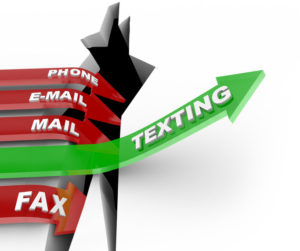The goal of marketing for a small business is to find the right audience for your services or products and apply the right strategies to reach them.
Related: Internet Marketing Strategy & SEO We’ll cover the best marketing tactics that small businesses can use to achieve their objectives.
3 Considerations When Choosing Your Small Business Marketing Strategy
-
Your Customers & Market Dynamics
Every small business owner should strive to understand their target customers. For example, what motivates them to do business with you? What do they need that you can provide? Answering these questions will help you choose the best ways to reach the right people with your marketing strategies.
Other than your customers, you need to understand your competitors, too. For example, who are they, and what marketing tactics do they use? What trends in your industry can change how customers interact with your business? You can survey your customers, directly call your competitors, and perform research online to gain insights into the market dynamics.
-
Your Marketing Goals
What are the goals for your small business marketing strategies? Do you want to acquire new customers, improve customer retention, increase the average purchase per customer, or something else?
Setting clear goals helps you design a marketing plan that aligns your small business’s limited resources, time, and budget with the local marketing strategies that will help achieve your marketing and operational objectives.
-
Marketing ROI
We work with small businesses, so we know that limited resources and budgets are commonplace. Successful small business marketing means focusing your efforts on the tactics that generate the highest return on investment (ROI) for your money.
Identifying this isn’t always easy, though. To determine which marketing strategies will deliver the best ROI, you have to test different tactics, collect results, and evaluate which ones perform the best for your business.
3 Ways for Small Businesses to Market Their Products & Services
There are many cost-effective marketing channels that small businesses can use—let’s look at three strategies that every small business should use to increase their marketing efforts and accelerate its growth:
1. Create a Website for Your Business
It serves many purposes, from educating your potential customers to bringing in leads from inbound marketing and serving as the destination where your customers will arrive from Google searches, content marketing, etc.
If done correctly, it offers a great 1st impression!
Related: Web Design Focused on Conversions & Targeted Traffic And don’t forget to:
- Incorporate SEO — Most customers rely heavily on Google to discover small businesses like yours. So, your website needs to be designed with search engines in mind, mainly Google! Search engine optimization (SEO) is what helps your business’s website rank higher on search engine results pages (SERP) and involves both the technical aspects of how your website is built, layout, and the content you include on it.
- Support mobile devices — Everyone has a smartphone, and everyone uses them constantly, including to research businesses and shop. Over 50% of your customers will find your website from a mobile device, and if it’s not optimized for smaller screens, it can turn potential customers away quickly.
Is it time to create your small business’s website? We can help design, host, and handle the SEO for your site—Book your free consultation.
2. Email Marketing
Small businesses often use direct marketing strategies, which involve reaching out directly to specific groups. For example, direct marketing includes handing out flyers to local residents.
Email marketing is a direct response marketing technique that small businesses can use to their advantage. It’s a strategy that allows small businesses to customize their messaging to different groups of customers. You can send welcome emails to strengthen relationships with new customers and thank you emails for returning customers. You can also send promotional content, coupons, discounts, etc. to incentivize purchases.
This personalized messaging is great for capturing the attention of busy customers and is much more effective than one-size-fits-all emails. The result is better customer engagement, higher open rates, and, ultimately, more sales.
3. Inbound Marketing
Inbound marketing helps strengthen your small business’s relationship with its customers by building trust and offering value over time through various tactics. Inbound and content marketing focuses on attracting customers to your business instead of pushing outbound messages (like ads) to them.
The key? Add value! For example, you can post articles on your website that talk about topics related to your business. Many searches online are questions, not key words! Customers looking for information have an incentive to visit your website for answers. When they arrive of their own volition, they’re more likely to think favorably of your small business and stick around to learn more.
Inbound and content marketing also helps strengthen your small business website’s SEO. In addition, posting insightful content helps position you as an industry expert. And when you provide value to people before they become customers, inbound marketing also helps improve your business reputation.
Related: Content Marketing: Smart Strategies for Small Businesses
When using inbound marketing, providing quality content is crucial. This marketing strategy doesn’t work unless your content provides genuine value to the people reading it. And don’t forget that content marketing is about more than blog posts; webinars, podcasts, and videos are all great content that small businesses can use to bring in more customers.
Did you know that we do content marketing, too? Learn about our inbound content marketing services for local and small businesses and schedule your free consultation.
We Help Small Businesses Grow
We know that behind every small business, there are hard-working business owners like you. And creating an effective small business marketing strategy takes time, resources, and expertise that you might not have available. That’s what we’re here for—you and your business.
Don’t hesitate to reach out.






